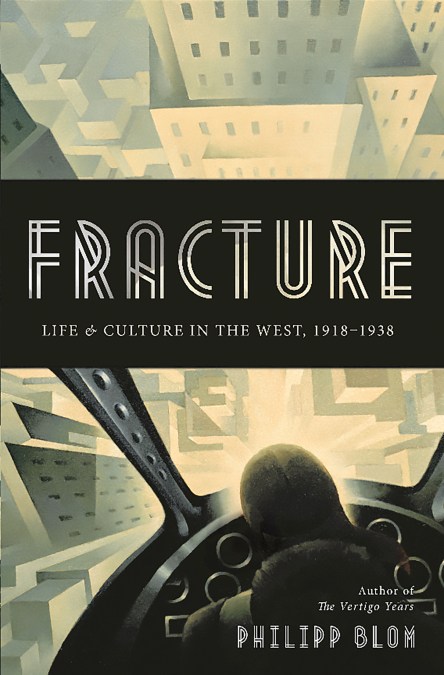Shopping Cart
Fracture
Life and Culture in the West, 1918-1938
Description
When the Great War ended in 1918, the West was broken. Religious faith, patriotism, and the belief in human progress had all been called into question by the mass carnage experienced by both sides. Shell shocked and traumatized, the West faced a world it no longer recognized: the old order had collapsed, replaced by an age of machines. The world hurtled forward on gears and crankshafts, and terrifying new ideologies arose from the wreckage of past belief.
In Fracture, critically acclaimed historian Philipp Blom argues that in the aftermath of World War I, citizens of the West directed their energies inwards, launching into hedonistic, aesthetic, and intellectual adventures of self-discovery. It was a period of both bitter disillusionment and visionary progress. From Surrealism to Oswald Spengler’s The Decline of the West; from Fritz Lang’s Metropolis to theoretical physics, and from Art Deco to Jazz and the Charleston dance, artists, scientists, and philosophers grappled with the question of how to live and what to believe in a broken age. Morbid symptoms emerged simultaneously from the decay of World War I: progress and innovation were everywhere met with increasing racism and xenophobia. America closed its borders to European refugees and turned away from the desperate poverty caused by the Great Depression. On both sides of the Atlantic, disenchanted voters flocked to Communism and fascism, forming political parties based on violence and revenge that presaged the horror of a new World War.
Vividly recreating this era of unparalleled ambition, artistry, and innovation, Blom captures the seismic shifts that defined the interwar period and continue to shape our world today.
In Fracture, critically acclaimed historian Philipp Blom argues that in the aftermath of World War I, citizens of the West directed their energies inwards, launching into hedonistic, aesthetic, and intellectual adventures of self-discovery. It was a period of both bitter disillusionment and visionary progress. From Surrealism to Oswald Spengler’s The Decline of the West; from Fritz Lang’s Metropolis to theoretical physics, and from Art Deco to Jazz and the Charleston dance, artists, scientists, and philosophers grappled with the question of how to live and what to believe in a broken age. Morbid symptoms emerged simultaneously from the decay of World War I: progress and innovation were everywhere met with increasing racism and xenophobia. America closed its borders to European refugees and turned away from the desperate poverty caused by the Great Depression. On both sides of the Atlantic, disenchanted voters flocked to Communism and fascism, forming political parties based on violence and revenge that presaged the horror of a new World War.
Vividly recreating this era of unparalleled ambition, artistry, and innovation, Blom captures the seismic shifts that defined the interwar period and continue to shape our world today.
Newsletter Signup
By clicking ‘Sign Up,’ I acknowledge that I have read and agree to Hachette Book Group’s Privacy Policy and Terms of Use
Praise
"[An] eminently readable tome full of splendid anecdotal detail. Mr. Blom's ability to convey a mood and to synthesize complex issues, is admirable.... Anyone reading this book today in the context of our own culture of doubt will feel an immediate affinity to the anxious and even desperate celebration of life that it portrays."
—Wall Street Journal
"Blom's technique is to blend transformative moments with biographical vignettes, sometimes of offbeat personalities. Experts on specific episodes can be sought out elsewhere. For the general reader, Blom delivers an orderly sense of the maelstrom of incidents and ideas with panache."
—Financial Times
"A fluent, often entertaining account of the period."
—New York Times
"[A] lucid appraisal of Western cultures between the wars"
—New Yorker
"Compelling.... Like other good popular histories, Fracture will make the uninitiated think, and the initiated think twice."
—Literary Review (UK)
